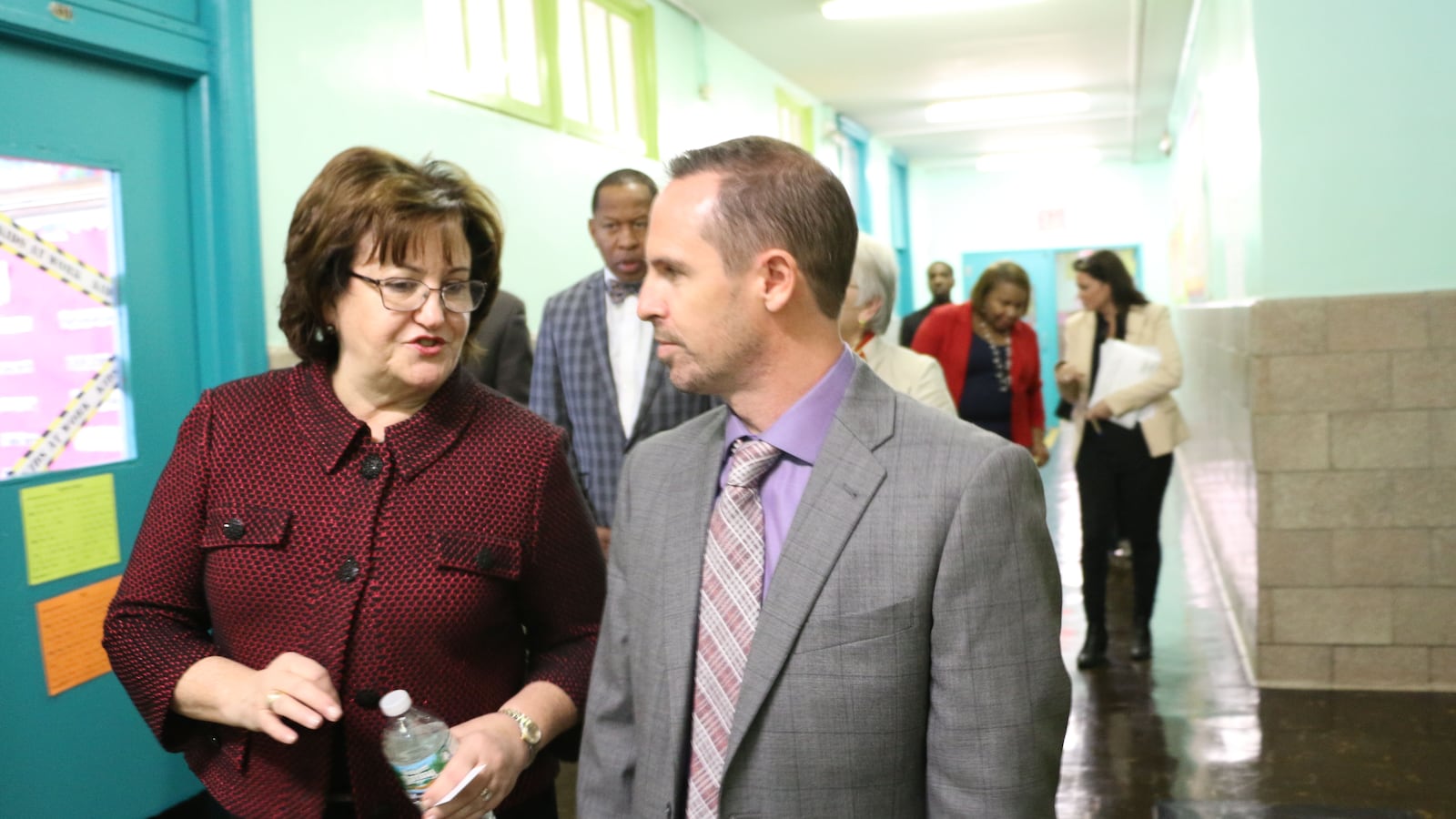New York took a sizable step toward replacing the controversial Common Core learning standards on Tuesday, releasing a revised set of standards that officials hope will be formally approved in June.
These revisions build on a draft set of standards released in September and include practices to improve reading and writing habits along with moving standards to different grade levels in statistics, probability and Algebra. (The full set of standards are available here.)
Despite the lengthy revision process, which included collecting more than 4,000 comments on the draft standards, state officials said these standards are not quite finalized. This most recent draft will appear before the Board of Regents next week and officials said they expect a final vote in June.
“These standards continue to be rigorous” said State Education Commissioner MaryEllen Elia on a call with reporters. “They challenge New York students to do more.”
Replacing the standards, which spell out the knowledge and skills students should be able to demonstrate at each grade level, is the first step in revamping the state’s entire education infrastructure — including tests and teacher evaluations.
Common Core became unpopular in New York in recent years as part of a firestorm of criticism about broader education policy. Critics objected to some of the standards themselves, but also to an overemphasis on testing and the use of standardized tests in teacher evaluations.
Dissatisfaction with these policies led one in five New York state families to opt out of state tests last year and the year before. In response, Governor Andrew Cuomo called for New York to join many states across the country in revising the standards.
Still, the question remains whether these revisions will lead to substantial differences in classrooms or whether they will be simply be a repackaged version of Common Core under a new name.
High Achievement New York, a group that supports the learning standards, sent a statement suggesting these revisions do not mark a major departure from the Common Core.
“The initial revised standards and this draft keep intact six years of work implementing and improving rigorous and high academic standards across New York State,” the statement read.
In most other states that have revised the Common Core, changes have been fairly minimal.
But Elia said in September that New York had changed more than half the standards and promised it was not just “tinkering around the edges.” On Tuesday, Elia said the state had not yet done a similar analysis of these new revisions.
Teachers have voiced opposition to specific standards, often in elementary school reading or higher-level math. The state took a first crack at fixing those problems in September. For instance, in the early grades, officials switched language from read “grade-level text” to reading “a variety of text levels.” Also, standards that were too vague for geometry teachers, like “prove theorems about triangles,” were clarified.
It appears officials again took a look at these puzzle pieces. Officials convened an early learning task force to continue making recommendations on how to best serve the state’s youngest readers. They also moved higher-level math standards to more appropriate grade levels, state officials said.
In response to an inquiry about English language learners, Elia said teachers who work with these students were intimately involved in the process of drafting the standards and the state is working on ways to help implement them.
That was an issue for New York City teachers union president Michael Mulgrew, who criticized the draft standards in September, particularly as they related to English learners and early grade levels.
The UFT had not sent a statement as of early Tuesday afternoon, but the state teachers union praised the process.
“New York educators played a central role in crafting these new, New York standards — an important change,” NYSUT President Andy Pallotta said in a statement. “In relying on educators in an open, transparent process, the State Education Department is showing a commitment to getting it right.”
There is also support, generally, for the substance of the Common Core standards. As part of the review process, the state surveyed teachers, parents and others, and found most respondents viewed the standards themselves favorably.
As for the name of the new standards, Elia said she will leave that up to the Regents to decide.

